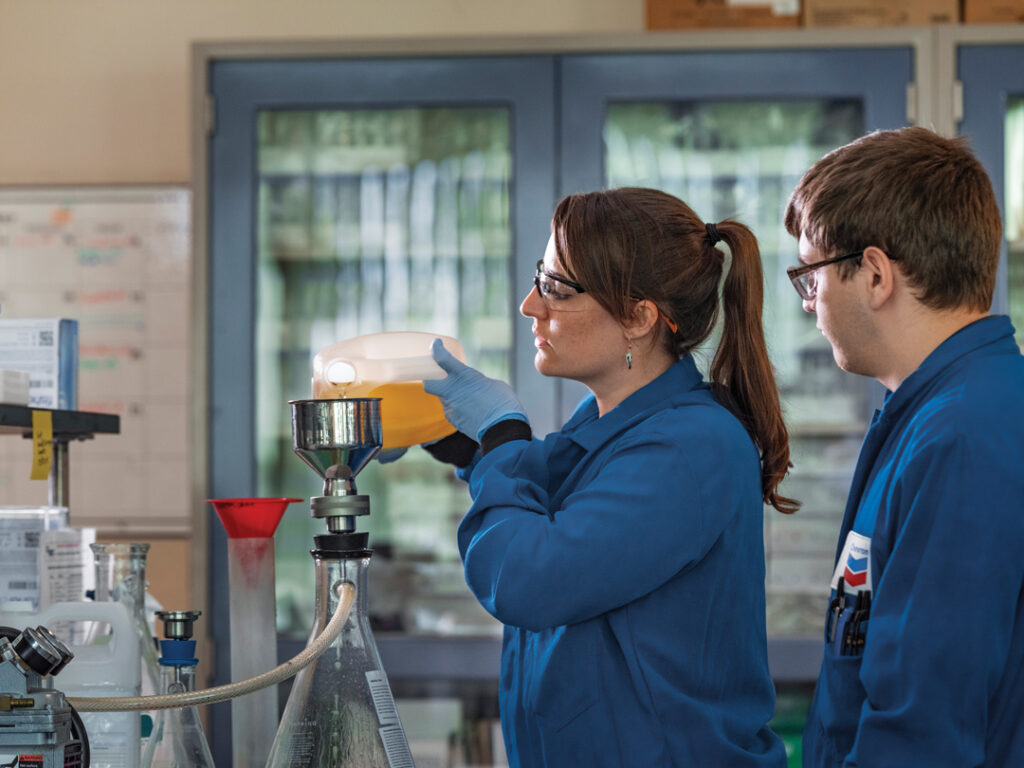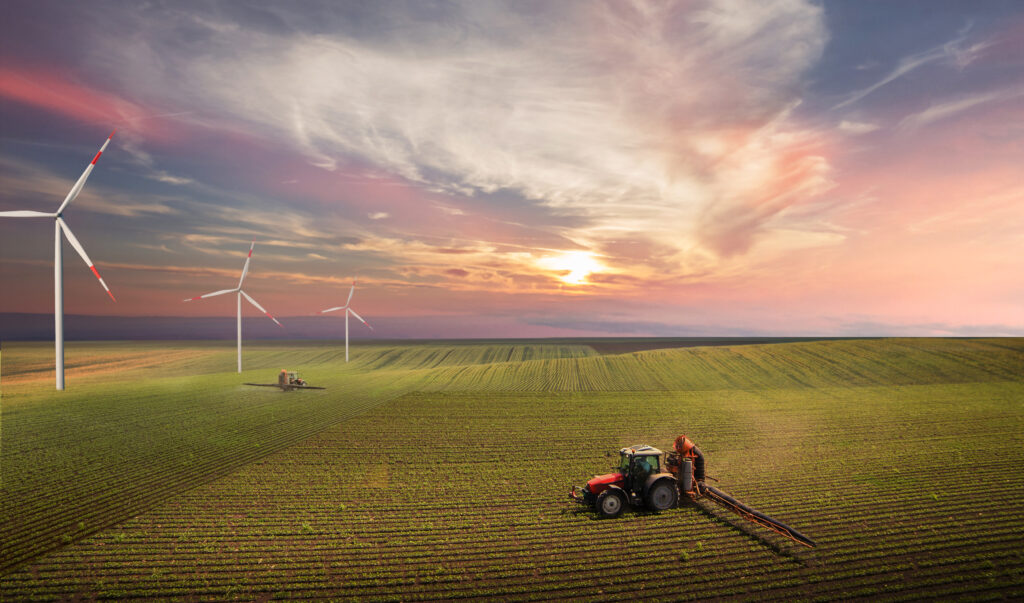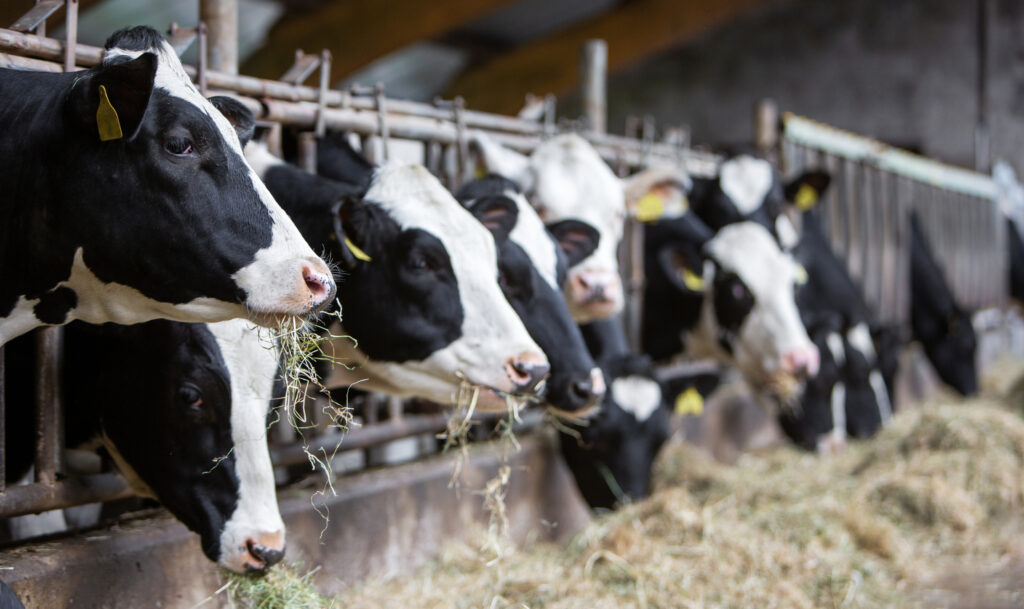University Research: Striving for green beer
UNI’s certification helps brewers conserve water

KATE HAYDEN May 9, 2018 | 1:35 pm
3 min read time
816 wordsAg and Environment, Business Record InsiderOVERVIEW
The Iowa Waste Reduction Center established the Iowa Green Brewery Certification in 2016 after center staffers realized their typical services were ignoring a growing industry in the state.
“We were looking at other ways we could achieve our core mission, which is to provide environmental assistance to small businesses across the state,” said Joe Bolick, the communications and public relations director for IWRC at the University of Northern Iowa.
Craft breweries are “growing exponentially across the state,” Bolick said — the national Brewers Association reports a steady increase in operating craft breweries, rising from 27 breweries in 2011 to 76 breweries in 2017.
The brewing process relies heavily on water supply and other resources, and the traditional compliance system that IWRC uses to serve manufacturers and other industries in Iowa didn’t work well with the microbrewing industry, Bolick added.
METHOD
The staff worked with 16 breweries across the state to understand the brewing process and environmental ramifications before launching the Iowa Green Brewery Certification. Today, the IWRC certifies breweries on a scale of bronze, silver, gold and platinum based on points the brewery receives for sustainable practices.
To be certified, the IWRC will set up a free audit to visit and inspect a brewery to determine its scoring on environmental and sustainable practices. IWRC staff members inspect breweries based on applicable environmental regulations, management of waste and resources, energy efficiency and water conservation and quality.
“We understand it is a very water-intensive process, so we try to find solutions to minimize that impact,” Bolick said. “There are fairly significant points awarded for minimizing your water-to-beer ratio.”
The IWRC is starting a new internship program this summer in partnership with the Brewer’s Association. The intern will work closely with the association’s sustainability mentor and four Iowa brewers to collect environmental practices data and compare the sustainability measures with other breweries of similar sizes nationally.
The audit is free to breweries, funded by the IWRC through the 1987 Groundwater Protection Act, which established the IWRC to provide environmental assistance to small businesses in Iowa. The IWRC will also assist brewery staff in exploring grant programs or finding farmers who will use a brewery’s spent grain.
RESULTS
Since establishing the Iowa Green Brewery Certification in 2016, the IWRC has certified six breweries across the state. The IWRC has had interest from organizations in three other states, including Illinois, that want to replicate the process, Bolick said.
“We took that first year and took it small; we certified those five breweries to kind of get the process down,” Bolick said. “This year we’re going to at least double that number, and also work possibly with some other states.”
The IWRC is now working with three more Iowa breweries on the certification process, he said.
“A lot of these breweries are going through an expansion. … They had one set up, but they’re going through an expansion, so they have us come in and take a look at some of the sustainability measures, give them some recommendations on what they can do in their new facility,” Bolick said. “We have four of those within the next two or three months that are going to be opening.”
Keg Creek Brewery of Glenwood was going through a facility expansion in 2016 when Vice President John Bueltel heard of the Green Brewery Certification process at an Iowa Brewers Guild event that spring.
“We wanted to have something very efficient,” Bueltel said. “We were trying to be as green as we could. We really looked that over as we were moving through that process to see which [practices] would match.”
Keg Creek Brewery scaled facilities from a three-barrel system to a larger production brewery, and used IWRC guidelines to aid designing a system that recycles cooling water that exchanges heat during the fermentation process. Keg Creek Brewery also turns over spent grain, a byproduct of the malt extraction process, to local farmers, who can use it to feed livestock or compost to fertilize food crops.
The staff also monitors the condition of Keg Creek Brewery’s facilities, monitoring for carbon dioxide leaks or any other wear that could affect efficiency.
“That’s part of being a green brewery ? making sure those things that save you money and are green, you maintain those,” Bueltel said.
The brewery started production in the new facility in January 2017, and is now a silver-certified Iowa Green Brewery.
In 2017, the Iowa Green Brewery Certification was awarded the Commitment to Iowa Award from the Iowa Recycling Association.
“It’s taken on a more active role within this industry. We spent the last two years diving into it and really becoming knowledgeable,” Bolick said. “Now it’s sharing that knowledge and what we’ve developed here in Iowa with the rest of the country, if we can.”
TO LEARN MORE
More information and a list of certified Iowa breweries are available at
– https://iwrc.uni.edu/green-brewery/certified.









